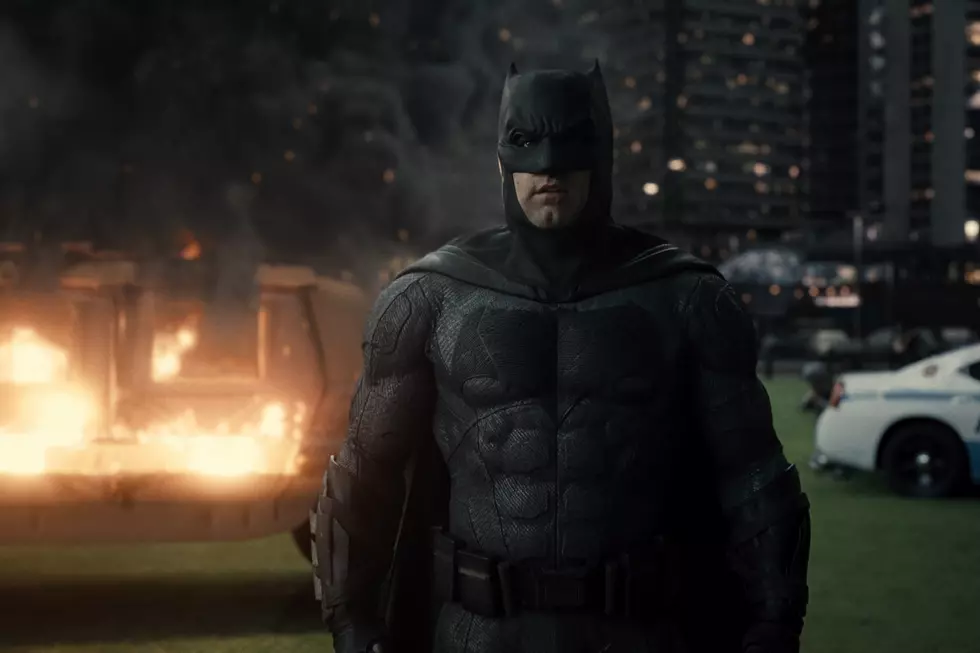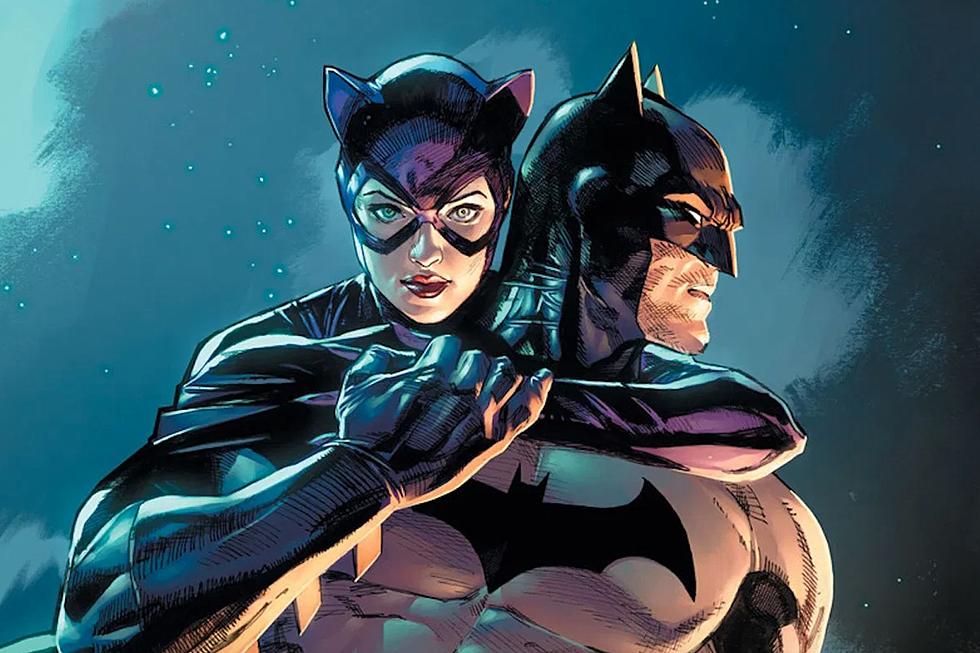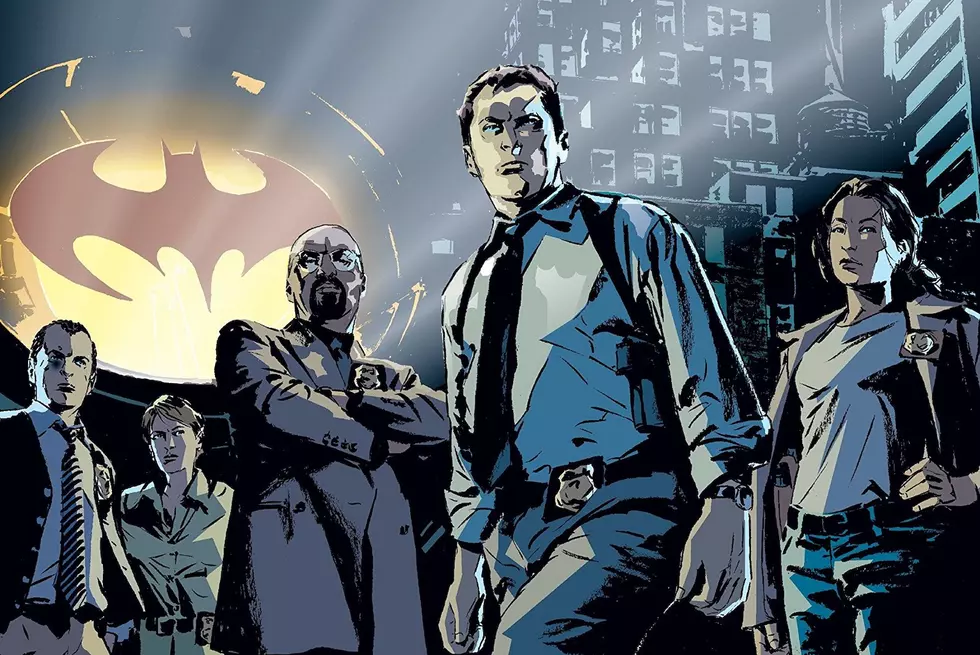![Take Care Of Yourself: ‘Batman’ Mastermind Scott Snyder On The Psychology Of Heroes, Villains And Writers [Interview]](http://townsquare.media/site/622/files/2014/07/Zero04.jpg?w=980&q=75)
Take Care Of Yourself: ‘Batman’ Mastermind Scott Snyder On The Psychology Of Heroes, Villains And Writers [Interview]
Writer of ComicsAlliance favorites The Wake and Batman, Scott Snyder is enjoying a kind of imperial phase of his comic book career, where everything he releases is met with commercial popularity as well as critical success. A long form collaboration with artists Greg Capullo, Danny Miki and FCO Plascencia, Batman has been the unquestionable leader of DC Comics' "New 52" line of superhero titles, routinely appearing in the #1 spot of monthly sales charts and just completing a wild and operatic revision of the Dark Knight's origin story in "Zero Year" -- an arc that CA's resident Batmanologist Chris Sims suspects may go down as one of his favorite Batman stories of all time.
But beneath Batman's twisty plots and memorably big moments lies the true trademark of Snyder's work; a conscious, almost intuitive sense of his characters' psychology and inner lives. It's Snyder's fundamental understanding of his heroes and villains that drives all the occasionally over-the-top action of his series, and of Batman especially.
Dr. Andrea Letamendi is a clinical psychologist and co-host of The Arkham Sessions -- the ComicsAlliance feature focused exclusively on psychology as expressed in Batman: The Animated Series -- and she sat down with Snyder at Comic-Con International in San Diego for a chat about the themes of mental health in not just his work, but in his own life.
ComicsAlliance: My first question has a lot to do with where things are culminating. We just wrapped up this amazing face off with the Riddler and Batman in "Zero Year", and we're pretty deep into Batman Eternal, so how are things going to tie up? Where do the timelines intersect?
Scott Snyder: In the past... Eternal has been changing Gotham's present, but what we're going to do on Batman, when I get back with #34 and #35 and beyond, we're actually going to jump to the end of Eternal, if that makes sense.
CA: Yes.
SS: So all the changes happening are going to be fully formed. So we're going to hit the ground running with #35, and in particular, you're going to be like, "woah, what happened!?" But that's going to be the fun, you wont have to have read Eternal. I promise you I'm never going to make you read another series to make you understand what's going on in Batman. Even my own series. But I think the fun will be dropping into a landscape that's slightly different, the biggest and craziest story that we've done. Even though it's only six issues, it's the biggest game changer and we want to celebrate the character's 75th anniversary by changing a lot of stuff up and trying new possibilities.
CA: Now you're talking about "Endgame". What can you tell us about "Endgame"?
SS: I'm trying to really keep it under wraps because I want you guys to read the first issue, which is definitely the biggest, most explosive issue in a way. Something happens in it that I know you're going to see and be like, "oh my god, I can't believe this is going on." So, for me, I don't want to give a lot away but what I'll say and I haven't said this until today, we're going to use the biggest cast we've ever used; you're going to get to see heroes you've never seen in Batman from a lot of your favorites and a lot of heavy hitters. Villains we've never used before in Batman. The story is going to involve all of them. So it really becomes a celebration not just of Batman and his allies, but Batman's place in the entire DC Universe. It's going to be out of control.
CA: Speaking of villains, I've seen you talk about DC villains in Necessary Evil, the documentary. There was the amazing "Death of the Family" arc with the Joker's just horrific traumatisation of the Bat family, then of course again this face off with the Riddler in "Zero Year". How do you know psychopaths so well?
SS: I know, he seems so nice, right? I think the thing that's so scary to me is the mercilessness of these characters. Joker is my favorite to write because he allows you to go to this place that's so dark. By the time I finished that story, by the way, I was so ready to never see him again for a while.
CA: We all were!
SS: Well, I knew there needed to be a second part of it, or at least another story with him that would follow it up. So at some point -- and I won't say when -- we have another story. If that one was all about love and his survival; love that he believed all of the villains have for Batman and that they make each other immortal by fighting and becoming these legends the next one will be about hate; where he's like, "now we're just going to burn everything to the ground."
The Joker is the most fun for me because what he really does, and I think this speaks to what maybe you're talking about with the psychology; he's not just scary because he does these terrible things, but he makes you afraid of the things you think might be true about yourself. He sees you and he says, I know what you're afraid of is true and you are that weak and you are that bad and I'm going to laugh at you and make this terrifying maze that shows you exactly why that's true. To me, that's pure villainy. That's my favorite antagonist. Monsters can be scary and they're great, but they're only really scary when they're reflections of us and they show you the things you're scared of might be true about your own nature.
CA: My last question is about self care. I know you're talking about your work with Greg Cappullo and how sometimes you push yourself to the limit. You certainly have used to word "ragged" as far as the work you do. We've seen all of your hard work. So, something i'm wondering if you can offer up to other creators and of course early on in this field, what do you do to take care of yourself and to really keep from burning out?
SS: I've said before, I've always had difficulty with anxiety and depression. I've been on medication for it since I was about 18 years old; varying degrees of medication. I've had big ups and downs with it and very bad periods. With Batman, I actually had a really bad period when we started "Zero Year", right at the beginning, I just wasn't taking care of myself at all. I was up too late all the time, I was working too hard. I wasn't exercising. I wasn't going to bed when I should, I wasn't eating well because I was so nervous about the beginning of this story and it all crashed on me and I just fell into...
I don't know if this is the same for everybody, but for me, sometimes I get depressed where I wake up and I can feel a change. Something went wrong, and it's almost like you feel tingly in a way where you know something is off and from that point forward this anxiety kicks in where you just worry and worry... this cyclical, terrible nature. I can't stop thinking about how awful everything I write is.
So what I'd say to other people out there, regardless if you have a similar difficulty, it's very important as a writer -- when you're all by yourself all the time -- to take care of yourself. Be healthy, get enough sleep, exercise and talk to people if you don't feel like you're doing well. I made that mistake and it was a hard couple of months. It really was by Greg's help, and Mark Doyle, the editor on the book, and Jeff Ramier and Ray Fox -- I talked to them every day, multiple times, asking, do you think it's going to suck? [When this happens] I feel like I'm terrible, I should give up. They kept me going with it and helped me get out of it. Take care of yourself.
CA: Thank you so much for sharing that, I know people will really appreciate your thoughts on that.
SS: I appreciate it. I love ComicsAlliance to death, so I always enjoy getting to talk to you guys.
More From ComicsAlliance









